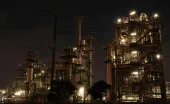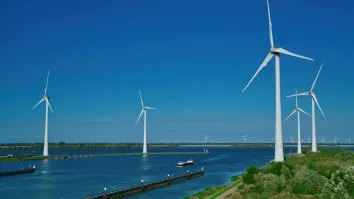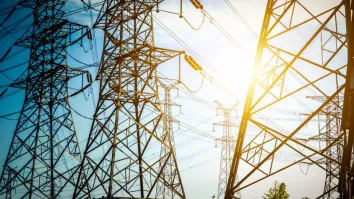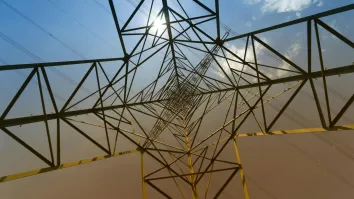
Taiwan's nuke-free vow under fire amidst recent massive blackout
Its decision to get power from renewables is being questioned.
The current objective of phasing out nuclear power whilst at the same time drastically reducing coal consumption in Taiwan’s energy mix by 2025 looks overly ambitious, according to Dr. Guo Yu, Principal Asia Analyst, Maplecroft. Taiwan is extremely dependent on seaborne natural gas imports, making the island vulnerable to supply disruptions due to geopolitical tensions and price volatilities.
"Taiwan is categorised as high risk in Verisk Maplecroft’s Energy Security Index with a score of 3.42/10.00. A greater reliance on energy imports would further undermine the country’s energy security. In addition, the growth of power generation from renewable sources is unlikely to fill the nuclear-coal shortfall. The government will also be wary of backlashes from the public and business communities over potential electricity price hikes during the transformation. Pressures to increase tariffs will likely mount over the coming years as hefty up-front investment is needed in the development of gas-fired plants and renewable power generation. At the same time, the government must also cover the cost of mothballing and decommissioning the country’s existing three nuclear plants before the end of their service lifespan, Dr Yu said.
While politically embarrassing for the Tsai administration, the fallout from the blackout does not pose an immediate threat to government stability. However, Dr Yu added that the incident raises questions of the government’s wider energy policy, which will prove an important issue that may determine the political fortunes of President Tsai and the ruling Democratic Progressive Party as we approach the next election cycle in 2020.
Kerry-Anne Shanks, head of Asia Gas and LNG, Wood Mackenzie added that even before the August 15 mass blackout, Taiwan is already facing some key issues in the power sector. "The cause of the blackout was human error which stopped gas supplies into the Tatan power plant. Subsequently, the plant with a total of 4,384 MW of gas-fired capacity went offline completely. Power cut-offs of this scale are difficult to back-up, but Taiwan's power market has also been stretched," she said.
The track record of adding new generation capacity on the schedule is poor. There have been frequent delays of new capacity construction - Taipower has been constructing 2,293 MW of new capacity, including one new coal-fired unit and three new gas-fired units. They were planned to help cope with the summer peak. But they were delayed and not available for peak demand in July and August.
"This means that importing more LNG or coal in the near term will not help matters. Taiwan has a capacity problem, not a fuel supply problem. During peak months June and July, reserve margins went as low as 2.5%, well below comfort levels which would be around 10 – 15%. Falling reserve margins which measure the amount of power a grid has over and above its demand, increase the risk of outages," she said.
In 2016, Taiwan had 80 days where reserve margins fell below 6%, which is unhealthy.



















 Advertise
Advertise







